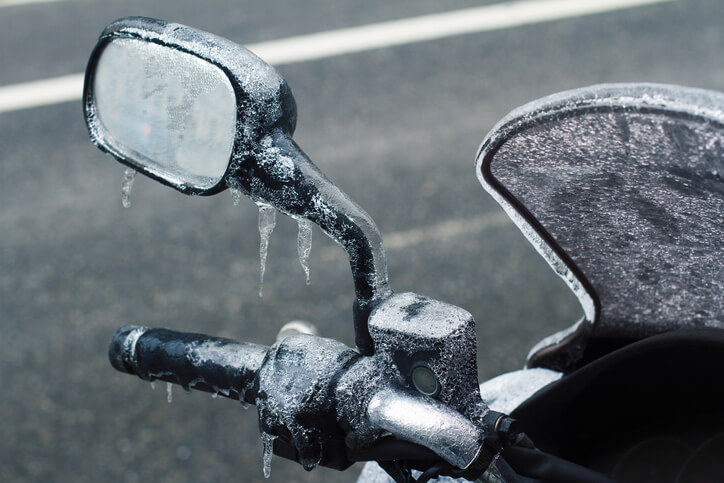Winter Riding Tips to Avoid Motorcycle Accidents

For a lot of motorcyclists, winter is the time they put their bikes away and wait for better weather. But not all. If you are the more adventurous sort, clear winter days might be ideal for you. Of course, you have to be extra careful because winter riding conditions can be hazardous. Here are some helpful tips you can use to avoid motorcycle accidents when riding in winter.
How to Avoid Motorcycle Accidents on Winter Roads
1. Find a safe place to practice winter riding.
If you are new to winter riding, it’s a good idea to get some practice in before you hit the road. You might be able to find instructional courses to teach you winter riding skills. If you can’t, take your bike to a safe space like an empty parking lot or a deserted back road to try out your maneuvering abilities. It’s better to learn how hard it is to ride on ice where you aren’t likely to get seriously hurt.
2. Gear up for winter.
Today’s gear manufacturers have done a lot to make winter riding safer and more comfortable. The right gear can help you avoid motorcycle accidents and make riding more enjoyable as well. For instance, you can get a bigger windshield to keep the wind off of you and a heated jacket to maintain your core temp.
3. Keep those lights on to prevent motorcycle accidents.
You know to turn on your lights in rain and snow. But you might not know it’s best to keep them on at all times during the low light of winter. You want to be as visible as possible. If you have a newer bike, your lights will probably turn on automatically. If you don’t, remember to turn them on before you start riding.
4. Become an expert ice detector.
Ice is your arch-nemesis when you are on your bike. It can throw you into a slide faster than you can blink. That’s why you need to get really good at identifying icy conditions. Look for the sheen of the light on the ice. And pay special attention to black ice, which can look like a wet road but is much more dangerous.
5. Don’t ride when the roads are bad or the weather is supposed to get worse.
This is the most important tip on this page. Defensive riding starts with choosing when to ride. And bad weather should always be a no-go unless you have no other choice. That includes upcoming bad weather. If you aren’t sure you can make it to a safe spot before the weather hits, stay home.
We Help Riders Injured in Motorcycle Accidents
Our motorcycle accident lawyers are passionate about helping riders like you following motorcycle accidents. If you or a loved one are dealing with serious injuries after a motorcycle accident caused by someone else, we want to hear your story.
Please give us a call at (801) 521-4145 or complete our online contact form for a free consultation. We are standing by to answer your questions.
